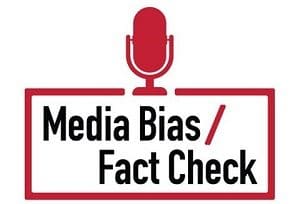RIGHT-CENTER BIAS
These media sources are slight to moderately conservative in bias. They often publish factual information that utilizes loaded words (wording that attempts to influence an audience by appeals to emotion or stereotypes) to favor conservative causes. These sources are generally trustworthy for information but may require further investigation. See all Right-Center sources.
- Overall, we rate Mosaic Magazine as Right-Center biased based on its editorial perspective, which moderately aligns with the Israeli Right. We also rate it as mostly factual, acknowledging its use of sourced information while noting the absence of hyperlinks to verify those sources directly.
Detailed Report
Bias Rating: RIGHT-CENTER
Factual Reporting: MOSTLY FACTUAL
Country: USA
MBFC’s Country Freedom Rating: MOSTLY FREE
Media Type: Magazine
Traffic/Popularity: Medium Traffic
MBFC Credibility Rating: HIGH CREDIBILITY
History
Mosaic Magazine was launched in June 2013 by the Tikvah Fund, a charitable foundation established in 1996. The Tikvah Fund promotes Jewish thought and encourages dialogue about Jewish ideas and values. Mosaic Magazine continues this mission by providing a platform for exploring issues relevant to American Jews, Judaism, and Israel. Each month, Mosaic features a full-length essay on an issue pressing significance for Jews, Judaism, or the Jewish state. The Tikvah Fund is based in New York.
Read our profile on the United States government and media.
Funded by / Ownership
Mosaic Magazine is published by Bee Ideas, LLC, an affiliate of the Tikvah Fund, a charitable foundation led by Executive Director Eric Cohen. The Tikvah Fund funds Mosaic Magazine. While the magazine may receive donations and subscription fees, the Tikvah Fund remains the primary financial backer.
Analysis / Bias
Mosaic Magazine leans center-right on the political spectrum, a stance attributed to its affiliation with the Tikvah Fund, a conservative Jewish think tank. For instance, the article titled What the Demographics of Israel’s Fallen Soldiers Reveal about the Country” examines the demographics of Israel’s fallen soldiers and how they might reflect broader trends within Israeli society.
The article begins by presenting a dispute among different segments of Israeli society regarding the demographics of fallen soldiers. It outlines the claims made by the Israeli right about the composition of soldiers who make the ultimate sacrifice for the country and provides data supporting several key narratives often associated with the Israeli right. For example, it acknowledges the overrepresentation of Religious Zionists among fallen soldiers, aligning with the right’s emphasis on national-religious values and contributions to defense. The article also focuses on the idea of elite replacement, suggesting that the old secular elite is being replaced or supplemented by groups like Religious Zionists in terms of public service and military sacrifice. The use of the phrase ‘old secular elite’ implies that secular Israelis are out of touch and no longer relevant.
Additionally, the article examines socioeconomic factors and their correlation with political and religious affiliations, reinforcing certain narratives about which groups are more heavily involved in defense and public service. In conclusion, the framing of the argument, the choice of topics, and the interpretation of data contribute to an overall tone that aligns with perspectives often associated with the Israeli political right.
The magazine also features a balanced analysis of Israeli-Diaspora relations without a strong political slant, such as “How Israelis Think about the Diaspora.” which explores the evolving perspectives of Israeli Jews towards the Diaspora and acknowledges both the historical connections and the changing dynamics in contemporary Israeli society. The article doesn’t use overtly partisan or politically charged language but focuses more on historical context, cultural dynamics, and evolving attitudes. This article also cites The Channel 13 report, yet it does not provide a hyperlink to verify the claims.
In general, Mosaic Magazine leans center-right due to its ties to the conservative Jewish think tank Tikvah Fund. Its articles often align with Israeli right-wing perspectives, although it occasionally offers balanced analyses on specific topics.
Failed Fact Checks
- None in the Last 5 years
Overall, we rate Mosaic Magazine as Right-Center biased based on its editorial perspective, which moderately aligns with the Israeli Right. We also rate it as mostly factual, acknowledging its use of sourced information while noting the absence of hyperlinks to verify those sources directly. (M. Huitsing 04/30/2024)
Source: https://mosaicmagazine.com/
Last Updated on April 30, 2024 by Media Bias Fact Check
Do you appreciate our work? Please consider one of the following ways to sustain us.
or
Left vs. Right Bias: How we rate the bias of media sources


